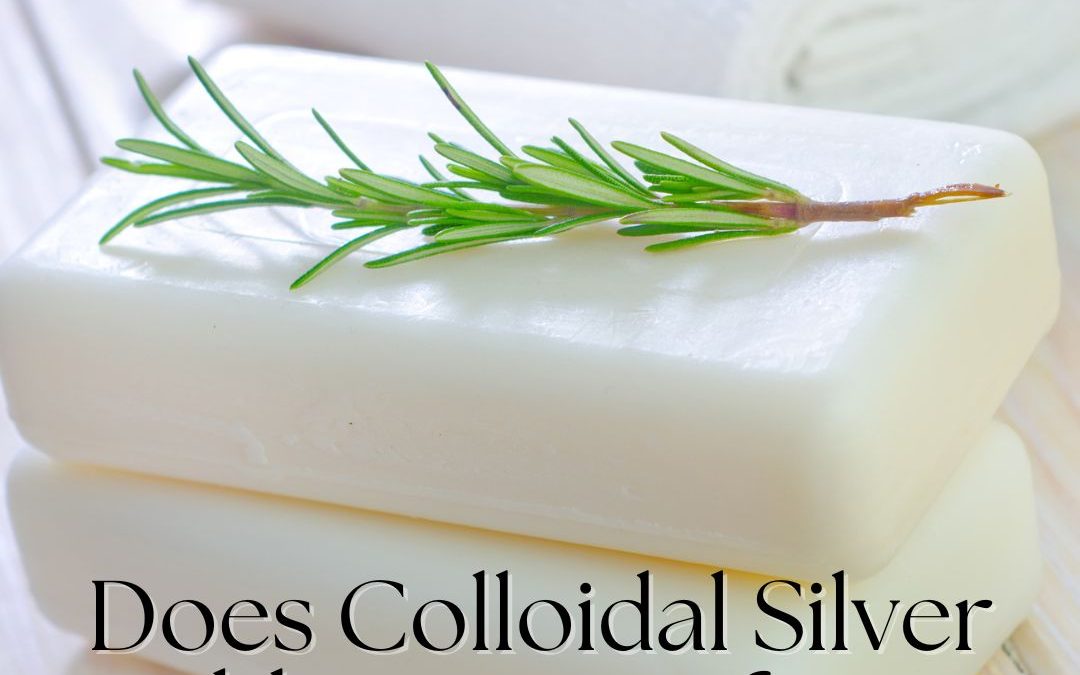This post may contain affiliate links, to learn more about them, check out our Disclosure.
Colloidal silver has long been touted for its antimicrobial properties and is often marketed as a health supplement or topical remedy. With its growing popularity, some soap makers have begun adding colloidal silver to their cold process soap recipes. But does colloidal silver truly add any benefits to soap? Let’s dive into the science, soap making processes, and practical considerations to uncover the truth.
What Is Colloidal Silver?
Colloidal silver is a liquid suspension of microscopic silver particles in water. Historically, silver has been used as an antimicrobial agent to kill bacteria, fungi, and viruses. Today, it is marketed for various topical and internal uses, although its effectiveness in many applications remains debated.
In the context of soap making, colloidal silver is often added with the belief that it will enhance the antimicrobial properties of the final product.
The Cold Process Soap Making Challenge
Cold process soap making involves a chemical reaction called saponification, where lye (sodium hydroxide) reacts with fats and oils to create soap. This high-pH environment can impact the stability and effectiveness of certain additives, including colloidal silver.
Why Colloidal Silver May Not Retain Benefits in Soap:
- High pH Environment:
- The high alkalinity of cold process soap (pH 9-10) can degrade or neutralize the antimicrobial properties of colloidal silver.
- Dilution Factor:
- When colloidal silver is added to soap, it becomes significantly diluted. This reduces the concentration of silver particles to levels unlikely to have any measurable antimicrobial effect.
- Saponification Process:
- The chemical reactions during saponification may alter the composition of colloidal silver, rendering it less effective or inactive.
Common Misconceptions About Colloidal Silver in Soap
1. “Antimicrobial Properties Will Protect the Skin”
While colloidal silver is known for its antimicrobial properties, there is no substantial evidence to suggest these properties remain intact after the soap making process. Furthermore, soap itself is already effective at removing bacteria and other microbes due to its cleansing properties.
2. “It Adds Unique Skincare Benefits”
Soap’s primary purpose is to cleanse, and most of it is rinsed off within seconds. Any potential benefits from colloidal silver would be minimal, as the contact time is too short to have a significant effect on the skin.
3. “It’s Worth the Extra Cost”
Colloidal silver is significantly more expensive than other common soap additives like essential oils or natural clays. Considering its limited, if any, benefits in soap, this extra cost is difficult to justify.
What Happens When You Add Colloidal Silver to Soap?
Adding colloidal silver to soap can result in:
- Discoloration: Colloidal silver may cause the soap to develop a gray, blue, or even greenish tint, depending on the concentration and other ingredients.
- No Noticeable Difference: In most cases, users report no discernible improvement in the soap’s performance, feel, or benefits.
- Increased Cost: The additional expense of colloidal silver does not translate into a better soap product.
What Should You Use Instead?
If you’re looking to enhance your soap, there are plenty of alternatives that are both effective and affordable:
- Essential Oils: Add natural antimicrobial properties and pleasant scents.
- Clays and Charcoal: Provide detoxifying and skin-soothing benefits.
- Honey: A natural humectant with mild antimicrobial properties.
The Bottom Line: Is Colloidal Silver Worth It?
In short, colloidal silver does not add any meaningful benefits to cold process soap. Its antimicrobial properties are unlikely to survive the saponification process, and the additional cost makes it an impractical choice compared to more effective, proven additives.
If you’re crafting soap, focus on ingredients that truly enhance the cleansing, moisturizing, or aesthetic qualities of your product. Colloidal silver may sound impressive, but when it comes to soap making, it’s more marketing hype than practical benefit.
Want to learn more about the benefits of oils and additives to soap? Check out our book Soaping & Skin.



